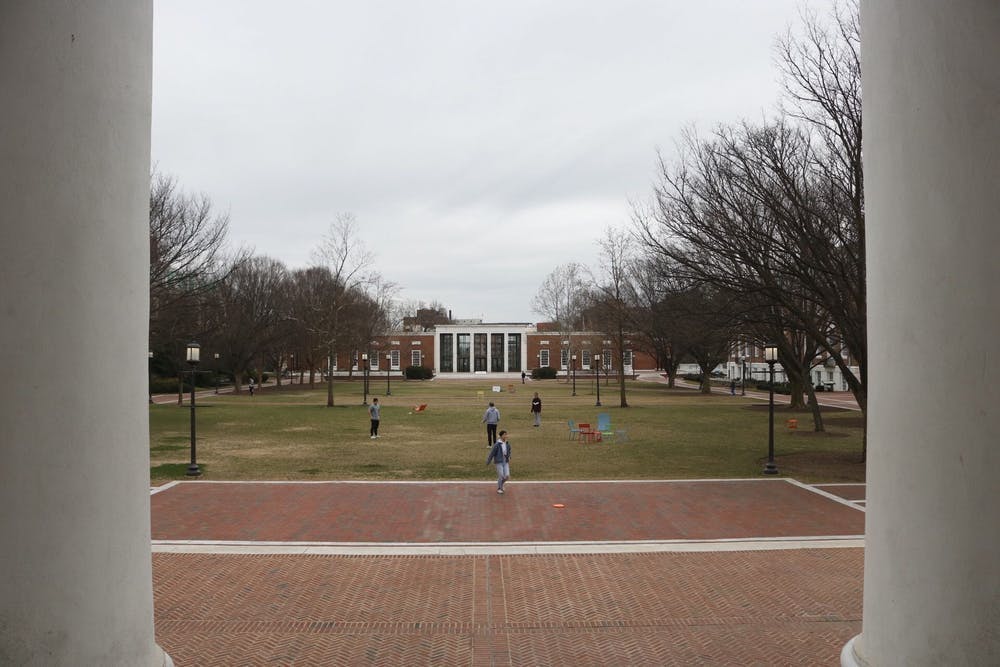Vice Provost for Student Affairs Alanna Shanahan and Vice Provost for Student Health and Well-Being Kevin Shollenberger announced in an email on August 26 that they will be distributing Wellness Kits to students residing in Charles Village. The Wellness Kits will be available at the Barnes & Noble on St. Paul Street from August 31 to Sept. 4 from 11 a.m. to 5 p.m.
The Wellness Kits include wipes, a digital thermometer, hand sanitizer and two masks — one with an Under Armour logo, another with a Hopkins logo.
Students picking up their Wellness Kits will be required to wear a face covering. They will also need to bring a mobile device to scan their QR code through the Campus Groups app before receiving their kits.
Rising junior and co-founder of the JHU On-Campus COVID Tracking Facebook page Steven Solar feels that the Wellness Kits adequately address the needs of students living off-campus but knows that student health will ultimately come down to individuals’ choices.
“Everyone needs to make a concerted effort with whoever they live with to establish policies that make sense,” he said. “It’s going to be holding your friends accountable and hard conversations, but I think if we all work together, we can make it work.”
Rising senior Justin Sech, co-founder of the Facebook page, noted that he and his housemates were motivated to create the page to help students stay informed about their community.
“I live in a fraternity house, and we have over 20 people in this one house. We were trying to come up with a good plan to put in social distancing guidelines,” he said. “We decided the best thing was to be open and plan for what happens when people don’t follow guidelines. The point of the Facebook group I created was trying to be transparent with everyone around campus.”
An email from Shollenberger on August 27 elaborated on the health and safety precautions that Hopkins is taking for the coming semester.
“The University stands prepared to support you in that effort with enhanced programming and staff this fall, and to share some of the best practices that have shown their effectiveness in the safe operations of our labs and other research facilities during the summer,” he wrote.
His email emphasized that HelWell will be open for undergraduate students in the fall; however, telemedicine visits will only be available for students residing in Maryland. The Johns Hopkins COVID-19 Call Center (JHCCC) will also be available at (833) 546-7546 seven days a week from 7 a.m. to 7 p.m. JHCCC will service members of the Hopkins community who are experiencing coronavirus (COVID-19) symptoms, order testing for them if needed and connect them with contact tracers to inform those they have been in contact with of their potential exposure.
Students who have been granted exceptions to live in on-campus housing are required to get tested upon arrival, with the testing continuing throughout the semester. Any Hopkins affiliates who are on campus, whether or not they are indoors, are required to use the Prodensity app to complete daily COVID-19 health checks.
Solar believes that the University should make COVID-19 testing more readily available.
“Right now, HelWell has free testing, but you need to have symptoms or contact with someone who’s tested positive. It would be really cool if that testing could be more available to students,” he said. “Readily available, free testing is the biggest thing for stopping the spread, and the school should be doing whatever they can to provide that.”
Shollenberger’s email also noted that the University is taking further efforts, such as diversity training for its health and wellness staff, to better support the needs of students of color who are dealing with the impact of both the pandemic and systemic racism.
In addition to testing, the University plans to create a dashboard that will track negative and positive test results among the Hopkins community. It also hopes to provide free flu-shot access through a retail pharmacy for all its students, regardless of whether or not they are living on-campus.
The University will continue to provide students with mental health resources; it has extended its partnership with TimelyMD, a mental telehealth service, through Jan. 24 and is providing free access to the Calm app for all affiliates and free access to the SilverCloud platform for all full-time students.
Solar believes that Hopkins students will do their best to keep each other safe.
“Everyone here wants to be here and wants to be healthy,” he said. “I don’t think that we’re going to be throwing giant parties and tailgates. Everyone here is really conscientious, and it will turn out okay.”
Shollenberger noted in his email that the University aims to provide students with the resources they need to be responsible for their own health.
“In this time of change and uncertainty, we will continue to innovate and implement the best ways to support all Hopkins students in maintaining and improving their physical and mental health,” he wrote.





